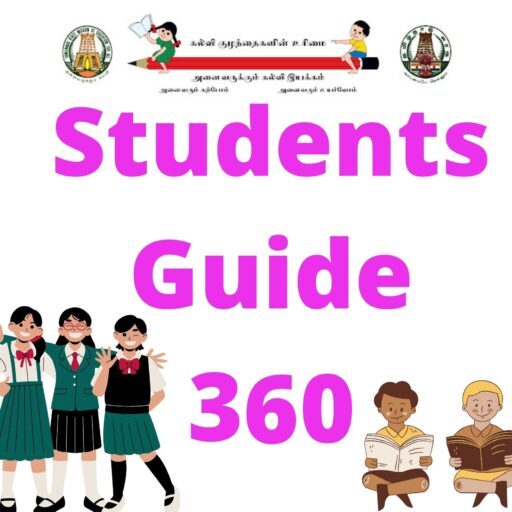10th English Unit 5. Poem: The Secret of the Machines – Book Back Answers
10th Standard English Unit 5 Poem The Secret of the Machines Book Back Answers. 10th English Unit 5 Poem The Secret of the Machines Book Back Answers Solutions Guide Pdf Prose Chapter 5 Poem Guide Tamil Nadu State Board New Syllabus and score more marks in your examinations. 10th All Subject Book Back Answers.
10th Standard English Book Answers | Unit 5.2 THE SECRET OF THE MACHINES
GLOSSARY
| furnace (n) | an enclosed structure in which material is heated to very high temperatures | அதிக வெப்பநிலையில் பொருள்களை கொதிக்க வைக்க மூடிய நிலையில் உள்ள கலன் |
| wrought (adj.) | beaten out of shape by hammering | சுத்தியால் அடித்து வார்க்கப்பட்ட |
| gauge (n) | an instrument that measures perfection in appearance and quality | தோற்றத்திலும், தரத்திலும் சரியாக இருக்கிறதா என்று அளவிடும் கருவி |
| thousandth (adv.) | a fraction of thousand | ஆயிரத்தில் ஒரு சிறு பகுதி |
| haul (v) | pull or drag with effort or force | ஆற்றலைக் கொடுத்து இழுப்பது |
| comprehend(v) | grasp, understand | புரிந்து கொள்வது |
| vanish(v) | disappear suddenly and completely | முழுவதுமாக திடீரென்று மறைதல் |
A. Answer the following questions briefly.
1. Who does ‘we refer to in ‘fest stanza’? a) Bwntan being b) Machines
“We! refers to the ‘Machines’.
2. Who are the speakers and listeners of this poem?
Machines are the speakers and Men are the listeners.
3.) What metals ore obtained from ores and mines?
Iron, Gold, Zinc, Copper.
4. Mention a few machines which are hammered to design.
- Mill Machine
- Feed Pelletizer Machine
5, Mention the names of a few machines that mn-on water, coal ar ail,
Steam – engine; Washing machine; Energy expeller oil machine.
6. Mention a few used for pulling, pushing, lifting, driving, printing, ploughing, reading and writing, etc.
- Bulldozer
- Crane
- driller
- Printer
- Tiller
- Scanner
- Typewriter
7. Are machines amide to accept the evolution of human brain? Why?
Yes, machines are humble to accept the evolution of human brain because the machines are the brain – children of humanbeings.
8. Whar feelings are evoked in us by the machines in this poem?
Pride and Prestige are the feelings evoked in us by the machines in this poem.
9 ‘And a thousandth of an inch to give us play’
Which of the following do the machines want to prove from this line?
- Onee machines are fed with fuel, they take a very long time to start.
- Once machines are fed with fuel, they start quickly,
The answer is (b) – Once machines are fed with fuel, they start quickly.
10. “And now, if you will set ns to our task,
We will serve you four and twenty hours a day!
- Who does the pronoun ‘You’ refer to here?
The pronoun “You’ refers to the human beings,
- Whose task is referred to as ‘our task! here?
The task of the machines is referred here.
- Open conditional clause used in the given line, Why is the future tense ‘will-set’ and ‘will serve’ used both in the ‘if clause’ and in the main clause?
The future tense is used to denote the ‘Surety” of the statement
- Do the machine serve us twenty four hours a day?
Yes, the machines serve us twenty four hours a day.
- Rewrite the given lines with the ending ‘365 days a year
And now, if you will set us to cur task,
We will serve you sixty five and three hundred days a year.
B. Write your favourite stanza from the poem and find the rhyming scheme.
| Lines | Figure of Speech |
|
Though out smoke may hide the Heavens from your eyes
twill vanish and the sees will shine again
Because, for all out power and weight and size
We are nothing more than children of your brain |
Rhyme Scheme ab ab |
C. Read the poem and find the lines for the following poetic devices or write your own example.
Alliteration
We can run and race and swim and fly ard dive
Assonance
Though our smoke may bide the Heavens frown your eyes
Personification
We can neither love nor pity nor forgive
Simile
We are nothing more than children of your brain





